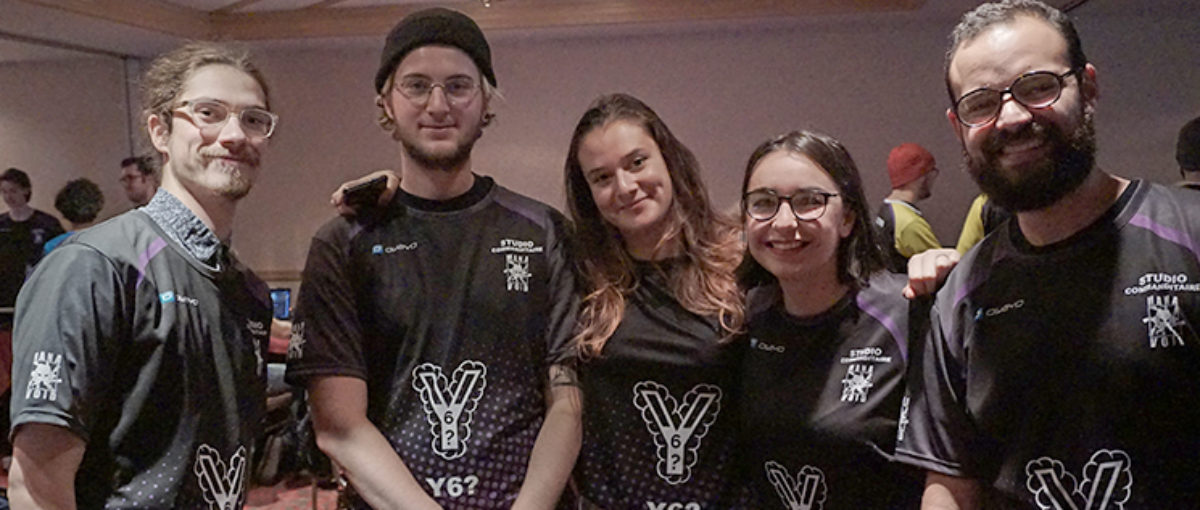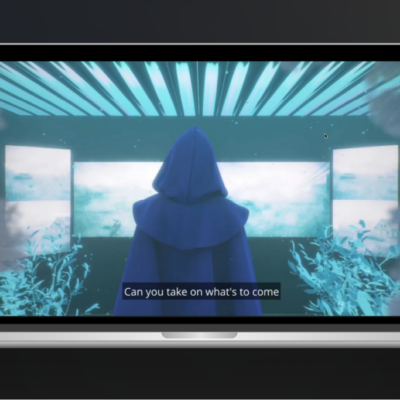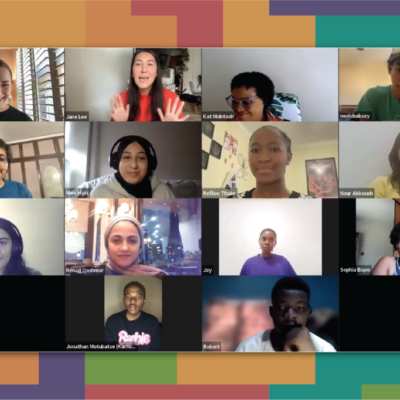
A Canadian Game Jam On Mental Health and Teens? Mais Oui!
The first weekend of October, iThrive staff made their way to Montréal, Canada to co-host the JamNATION game jam. The jam was the perfect opportunity to test two shiny new Design Kits we developed with expert devs and scholars at this fall's iThrive Design Hive: "Designing for Teens" and "Games and Mental Health." We were eager to debut our design guidelines related to teens and mental health at this unique jam, and our jammers responded with equal enthusiasm!
iThrive Design Kits are best-practices guides that support developers of all experience levels in designing games that promote positive habits to help players-and especially teens-thrive. The ultimate goal of the Kits is to spur the production of compelling and meaningful games: those that perfectly combine fun and innovation with opportunities for players to build critical social and emotional skills. Game jams are where we rigorously field test these Kits to determine if they "work": are they useful and engaging? Are they accessible to devs of many backgrounds and experience levels? Do they produce relevant, innovative prototypes?
JamNATION is a game jam league, kind of like a corporate softball league. Different teams pay membership dues to compete, and teams are often sponsored by large studios such as Ubisoft. They have custom numbered jerseys and everything! There are 6-8 jams during a regular season, and the teams compete for the right to earn a spot at the Season Finale, which is a large, more luxurious jam in the spring with high-end catered food, lots of swag and prizes, comfy sofas, and a masseuse. The jam we co-hosted was the first of JamNATION's regular competitive season, and 85 jammers participated to produce 14 games!

A group of jam participants
Devs designed for themes of mental health and teens, and to make it more challenging, we introduced an additional design constraint: make games with no text or language in them. The jammers were a multilingual audience so we wanted to inspire games that would be accessible to all participants, regardless of their language abilities, and it's also in line with our focus on supporting games that are accessible to the widest range of players possible. We work to build this "Universal Design" into everything we do.
We found much more in Canada to compliment than the poutine. Our thoughtful and dedicated jammers included a couple of teens, which is not typical for a JamNATION jam and certainly enriched our conversations about designing for teens! The winning game was "Breathe," which is fully playable in 3-5 minutes. In it, you play as a teen who needs to balance an ever-increasing number of tasks — pushing buttons and pulling levers and filling meters — and who may eventually be overwhelmed and need to be reminded to "just breathe." This was a great representation of the developmental changes going on for teens, who suddenly have much more adult-like responsibilities and roles to fulfill even as their brains are still learning to cope with stress and other potentially overwhelming emotions.

A developer works on background art for a game.
Other games included a dancing gecko who would change colors to fit in with other groups of geckos (a nod to teens' competing desires to both fit in and stand out, and to their search for a cohesive identity); a glowing squid who descends to the depths of a dark hole to save a friend (friends become much more important to teens than they were in childhood, and teens often turn to each other before family members when they're struggling with something like depression); a character who has to dodge trolls and "earn spectators" while also doing self-care (a nod to social media stress!); and a co-op game where only one player knows where the enemies are hiding and has to describe their location to the other player (practicing taking another's perspective is something teens are still learning how to do, and games like this might strengthen those skills). We were prepared for the possibility that this jam might unearth a lot of heavy themes with its dual focus on mental health and teens, but jammers surprised us by making games full of color and joy, all the while addressing these important topics!
Our new Canadian friends not only introduced us to a variety of potato chips not available in the United States, they also brought their "A" game with some cool mechanics we'd never seen at iThrive Game Jams before: procedural generation and mobile play. We also had more games at a single jam with original music in them than we'd ever seen before. C'est bon!
The Monday that we flew back home happened to be Thanksgiving Day in Canada, and we were and are certainly thankful for the good folks at JamNATION and all the participants who spent their weekend jamming with us. Watch for more about those games and footage from the jam in the new year!

